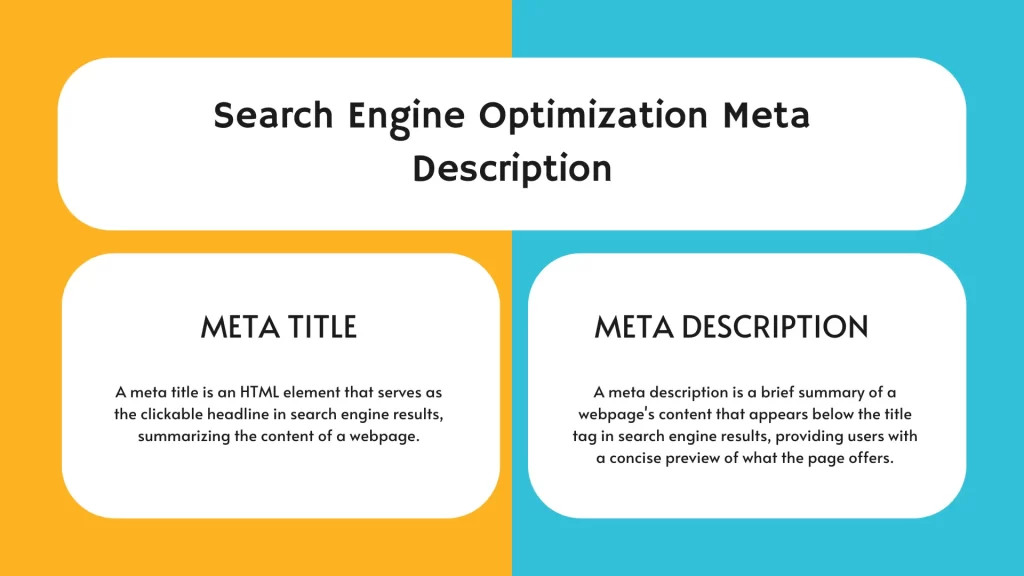Search Engine Optimization Meta Description
Search Engine Optimization Meta Description is a crucial element of any effective SEO strategy. A meta description is a brief summary of a webpage’s content that appears below the title in search engine results. Crafting an optimized meta description can significantly impact your click-through rates, as it provides potential visitors with a snapshot of what they can expect from your page. By incorporating relevant keywords, including the main keyword Search Engine Optimization Meta Description, and creating compelling, informative descriptions, you can attract more organic traffic and improve your search engine rankings.
An effective Search Engine Optimization Meta Description should be concise, typically between 150-160 characters, and include a clear call to action. It should accurately reflect the content of your page while enticing users to click through to learn more. Additionally, using natural language and maintaining a human tone ensures that the description resonates with your audience and search engines alike. By focusing on these elements, you can enhance your website’s visibility, drive more targeted traffic, and ultimately achieve better engagement and conversion rates.
Introduction to Search Engine Optimization Meta Description
Search Engine Optimization (SEO) meta descriptions are brief summaries that appear below the title tag in search engine results pages (SERPs). In this article, we’ll explore the significance of meta descriptions in SEO and strategies for optimizing them to improve click-through rates and enhance search visibility.
Importance of Meta Descriptions in SEO
Meta descriptions serve as a preview of your webpage’s content, providing users with valuable information about what to expect before clicking through. They play a crucial role in attracting clicks, improving user engagement, and influencing search engine rankings.

Anatomy of an Effective Meta Description
An effective meta description is concise, descriptive, and enticing. It should accurately summarize the content of the webpage while compelling users to click through. Elements of a well-crafted meta description include relevance, clarity, and a strong call-to-action (CTA).
Writing Compelling Meta Descriptions: Tips and Techniques
Writing compelling meta descriptions requires a combination of creativity and strategic keyword placement. This section will provide practical tips and techniques for crafting attention-grabbing meta descriptions that resonate with your target audience and entice them to visit your website.
Optimizing Meta Descriptions for Search Engines and Users
Optimizing meta descriptions involves striking a balance between catering to search engine algorithms and meeting user expectations. We’ll discuss strategies for incorporating relevant keywords, showcasing unique selling points, and aligning meta descriptions with searcher intent.
Tools and Resources for Crafting SEO-Friendly Meta Descriptions
Numerous tools and resources are available to aid in the creation and optimization of meta descriptions. From keyword research tools to SERP preview tools, we’ll explore the top resources that can streamline your meta description optimization efforts.
Common Mistakes to Avoid in Meta Description Optimization
Avoiding common mistakes in meta description optimization is essential for maximizing their effectiveness. This section will highlight pitfalls such as keyword stuffing, using generic descriptions, and neglecting to include a compelling CTA.
